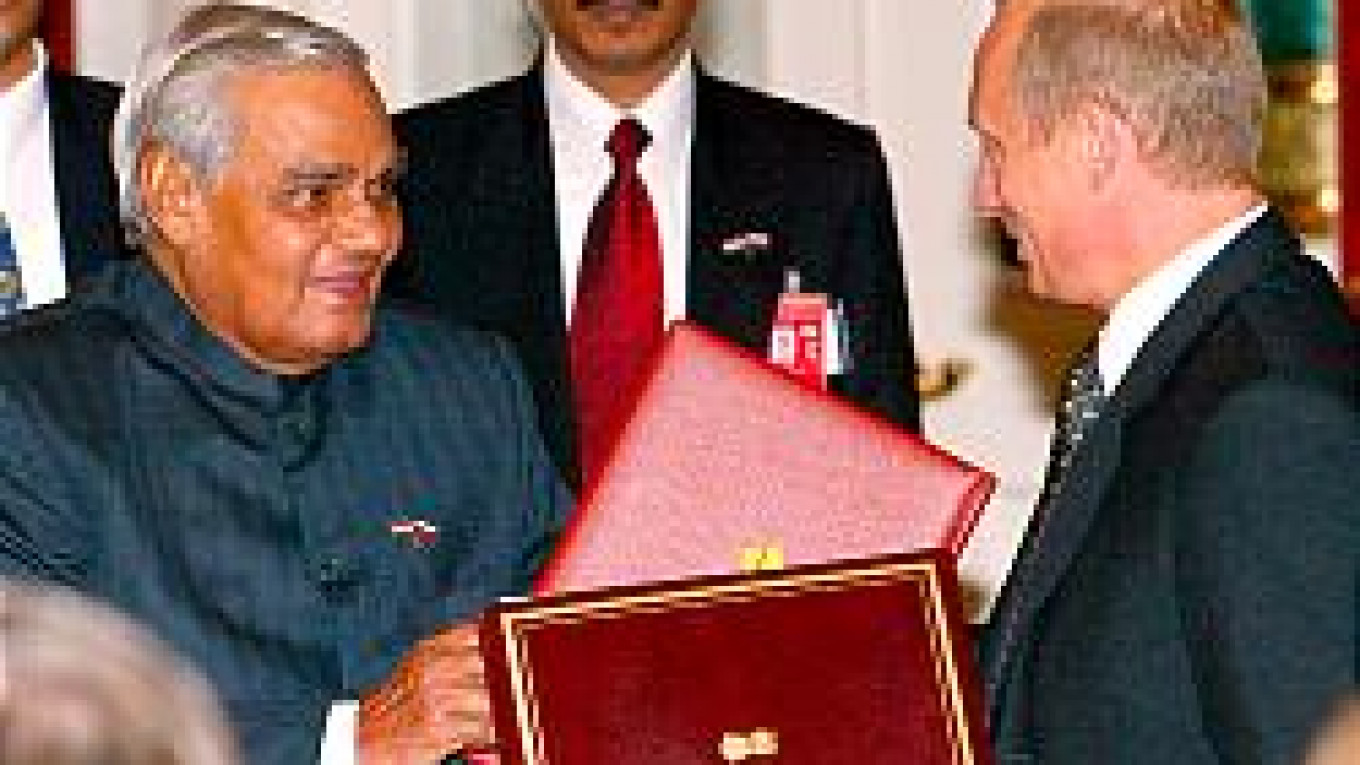The statement, signed during a second day of talks between the leaders, said that "no one country or group of countries should appropriate for itself a monopoly on the right to control the fate of the world through 'humanitarian' or other interventions."
The language echoed Russia's longtime foreign policy aim of creating a "multipolar world" to balance what the Kremlin regards as the United States' penchant for unilateral actions. India has been a supporter of that policy.
The statement also called for "a consistent and uncompromised approach to terrorism, eradicating the practice of exchange and improving economic and technological cooperation."
India, which had a close relationship with the Soviet Union during the Cold War, has become one of the main buyers of Russian weaponry, and the two nations carried out a large-scale naval exercise this year.
Russia exported $4.8 billion worth of weapons last year, with China and India topping the list of customers. Among the deals was the $1 billion sale of three Russian-built frigates to the Indian Navy. Two have already been delivered.
Last week, India successfully tested its Brahmos cruise missile system, a joint project with Russia. Russia and India are also jointly developing a fifth-generation fighter jet.
"Our cooperation in the economic, technical, military and space areas has been very fruitful," Vajpayee said after the meeting. "The Brahmos, launched some days before, is a fruitful example."
"Our approach to the majority of world problems practically coincides," Putin said, adding that Russia welcomed Indian initiatives to improve relations with Pakistan.
Vajpayee, who arrived Tuesday evening, briefly met with Putin at the Russian leader's suburban residence and held more formal Kremlin talks on Wednesday.
Vajpayee opened the talks by expressing his country's increasing concern over the worsening situation in Afghanistan. He called on the international community to commit to political reconstruction and economic reform of the nation, saying many key tasks still remained unfulfilled.
After leaving Russia, Vajpayee is scheduled to visit Tajikistan and Syria.
A Message from The Moscow Times:
Dear readers,
We are facing unprecedented challenges. Russia's Prosecutor General's Office has designated The Moscow Times as an "undesirable" organization, criminalizing our work and putting our staff at risk of prosecution. This follows our earlier unjust labeling as a "foreign agent."
These actions are direct attempts to silence independent journalism in Russia. The authorities claim our work "discredits the decisions of the Russian leadership." We see things differently: we strive to provide accurate, unbiased reporting on Russia.
We, the journalists of The Moscow Times, refuse to be silenced. But to continue our work, we need your help.
Your support, no matter how small, makes a world of difference. If you can, please support us monthly starting from just $2. It's quick to set up, and every contribution makes a significant impact.
By supporting The Moscow Times, you're defending open, independent journalism in the face of repression. Thank you for standing with us.
Remind me later.


